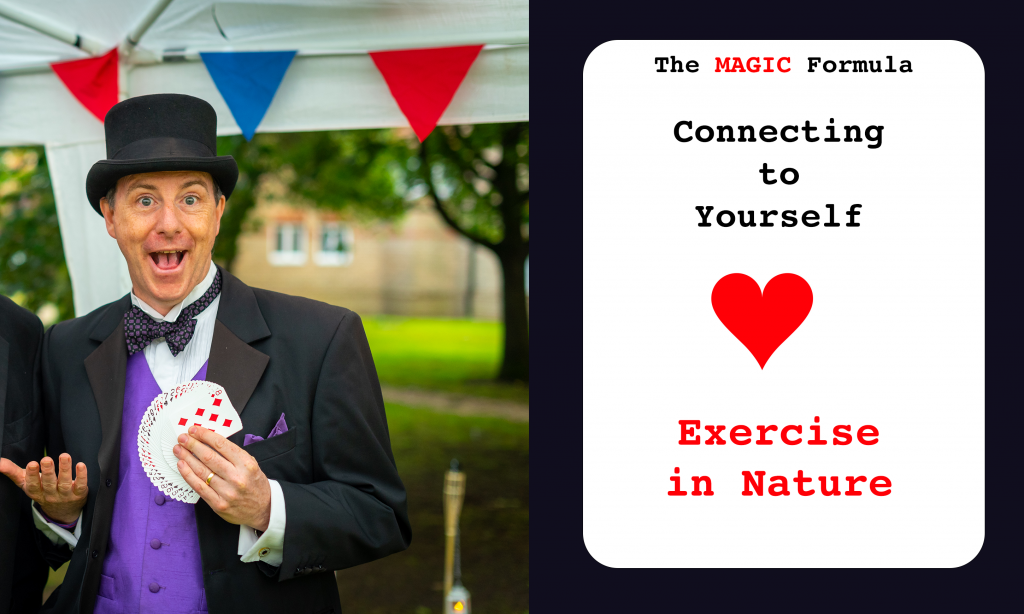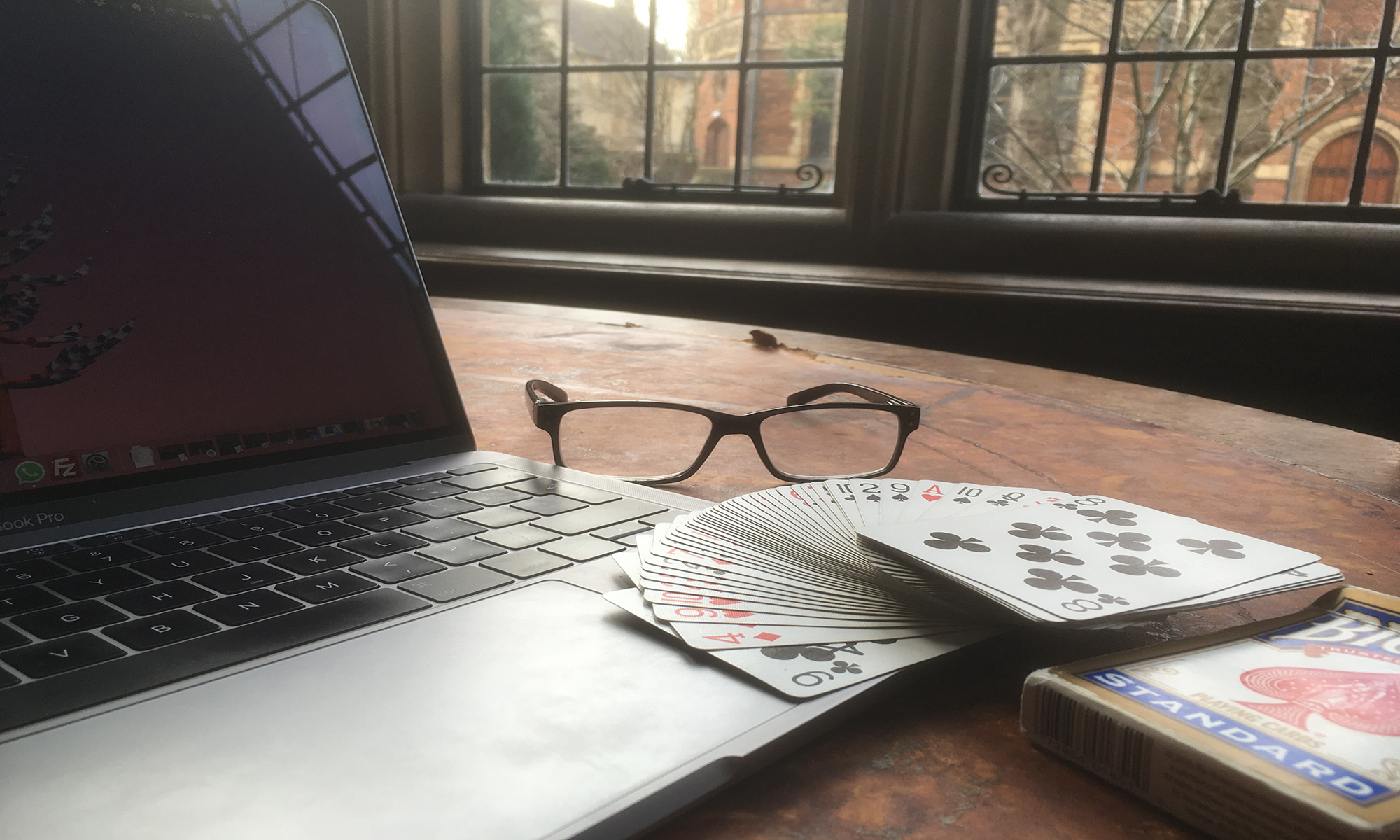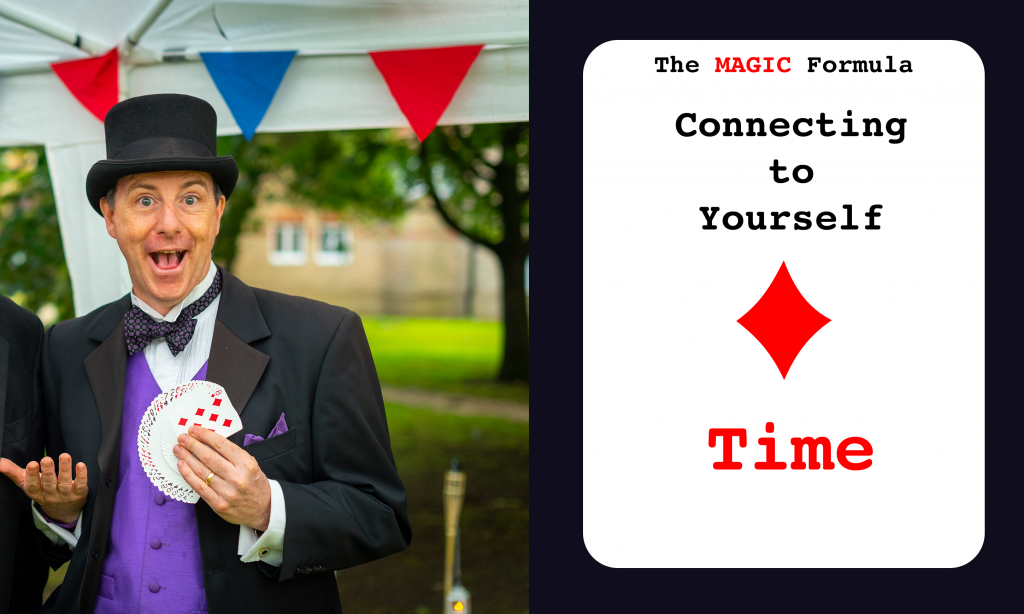
The MAGIC formula:
Moving
Attuning
Giving
Inspiring
Connecting
It applies to:
Yourself
Your clients
Your team
Your prospects
—
Right Royals
I am currently enjoying The Crown on Netflix. Say and think what you like about the Royal family, you have to admire their commitment to getting outdoors for some good healthy exercise.
Happy Paddler
Those who know me will know that I have a kayaking habit. I take out my sit-on-top kayak once a week for two to three hours. I paddle around, stop halfway for lunch on the riverbank.
It’s not a fast boat, but I love it. Over the last few years, I have seen some amazing things on these trips: pairs of kingfishers chasing each other across the canal; a deer swimming across the river just metres behind me; a fox racing me along the riverbank as I paddled along; a stoat coming and sitting a few metres away as I cooked up my baked beans. Special moments, unlikely to be repeated, which have become treasured memories.
Why am I so committed to kayaking every week, even when it’s freezing cold? It’s not just a nice thing to do, I believe it is essential for my work. Why is this?
I think we should all aim to do some exercise regularly in the great outdoors because:
– it is good for our mental health,
– It’s good for our physical health and fitness,
– It is intellectually stimulating and challenging, and
– it’s great thinking time.
Mental Space
Getting outside for a walk, cycle, or kayak gives you great headspace time. Your horizons literally get bigger, your eyes open to the wonders of nature, you get time to think. And time not to think.
I would encourage you to take off your headphones. Allow yourself to hear the birds, the rush of the wind, the patter of the raindrops. Let your brain slow down a bit. Get some perspective.
Better Body
Exercise is good for your body. I realise that is not a groundbreaking statement. But worth repeating nevertheless. It is an excellent antidote to sitting at your desk all day. Sitting a lot makes your muscles ache – I’m sure you’ve experienced this. Some vigorous exercise can help to alleviate that, to dispel some stiffness.
Muscle strength is also crucial for good posture and maintaining balance, particularly as we get older. I think decent strength and stamina reduces our risk of picking up annoying injuries as we go about our daily lives.
And I find that the change in focal length is refreshing. Staring at a screen all day means our eyes are always focused at one distance. Going outside to bigger horizons gives them a rest.
Health-wise, the benefits of vitamin D are well known. As well as being beneficial for your bones and joints, there are reports that it might even help to prevent COVID-19.
I’m a big advocate in getting out in all weathers. I love the Scottish maxim that there is no bad weather, only the wrong clothes. Wim Hof might seem slightly extreme with his ice walks and ice swims, but it has been demonstrated that exposing yourself to a bit of shiver-inducing cold each day could help to improve your immune system.
Get out there so that the sun, rain and wind can hit your face. You’ll feel better. And you’ll look healthier, in person and in all those Zoom meetings.
Brain Boost
One of the reasons I love kayaking is the problem-solving and challenging situations it throws up. Maybe there’s a tree down across the river, and I have to get past it. Maybe a strap has snapped on my kayak, and I have to improvise.
If you have been camping, you will know that this involves all sorts of problem-solving situations. I find this very stimulating and a welcome change from the everyday computer-based thinking.
Nature itself is also intellectually and creatively stimulating: the beauty, the intricacy, the ingenuity. You can derive all sorts of inspiration from observing plants and animals. I like to explore natural environments with different degrees of human management: carefully managed parks, slightly wilder farmland, and occasionally wilderness – although that is hard to find these days.
Pondering and Percolating
Taking some time go for a walk or engage in some other sort of outdoors activity is also wonderful thinking time. Even if you don’t consciously focus on a particular problem, your brain will be percolating ideas in the background. There are countless times when a breakthrough, an epiphany or a moment of inspiration has come to me while walking the dog. It is always worth having a notepad or phone handy, so you can make a note of these flashes of inspiration.
Now, where are your coat and boots?
—
Download my free eBook “Be Kind to Yourself” and learn how to:
- Adapt to new ways of working
- Harness the power of habits
- Optimise the use of space in your home
- Use clothes to boost productivity
- Focus on what matters
- Plan for the future amidst uncertainty



